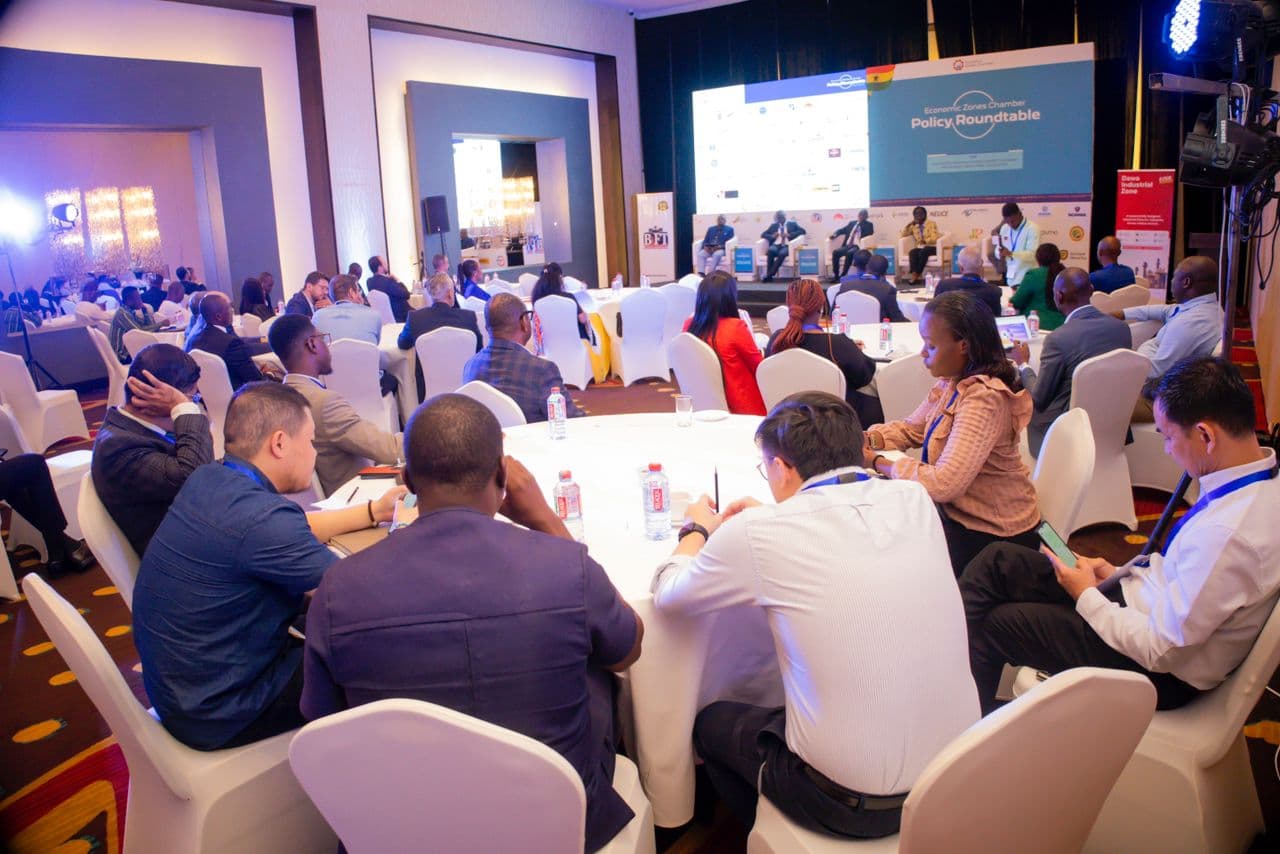Can Africa's Transport and Logistics Industry Meet the 28% Increase in Intra-African Freight Demand by 2030?
Go to all updates
Enabling the acceleration of intra-African trade and bolstering investment and export activities, AfCFTA has set ambitious projections for the transport and logistics industry. The industry is faced with the task of meeting a staggering 28% increase in intra-African freight demand by 2030, demanding the deployment of an additional 2 million trucks, 100,000 rail wagons, 250 aircraft, and more than 100 vessels. The question that looms large is whether Africa's transport and logistics sector is adequately prepared to navigate this challenging terrain and contribute to the continent's economic metamorphosis.
Meeting the Demand
The transport and logistics industry plays a pivotal role in the success of the AfCFTA, acting as the lifeline for seamless intra-African trade. The establishment of AfCFTA aims to reduce trade barriers and import costs, particularly benefiting small and medium-sized enterprises (SMEs) as they become integrated into the larger continental market. However, the industry's ambitious goal of reducing Africa's dependency on imports, currently at $36.8 billion annually for freight transportation, adds another layer of complexity to an already formidable challenge.
The AfCFTA's projection of a 28% increase in intra-African freight demand sets the stage for a herculean task. The industry must ready itself to cope with this surge, requiring significant investments and collaborative efforts from the private sector in partnership with various stakeholders. The question remains: Can Africa's transport and logistics sector rise to the occasion and propel the continent toward economic prosperity?
DHL's GoTrade Initiative
One company that has stepped up to the challenge is DHL, the world's largest logistics company. Through its GoTrade initiative, DHL aims not only to facilitate trade but also to drive inclusive and sustainable economic development in African countries. Aligned with the goals of AfCFTA, GoTrade focuses on reducing trade barriers and modernizing customs procedures, with a particular emphasis on SME capacity development.
GoTrade facilitates collaboration between DHL experts on the ground and customs organizations to identify bottlenecks and reduce administrative burdens, processing times, and compliance costs. The initiative has already made strides in Côte d'Ivoire and Rwanda, spearheading trade facilitation initiatives that could serve as models for other African nations.
Empowering SMEs is at the core of GoTrade's strategy. With training programs reaching over 4,000 SMEs globally, GoTrade is making a tangible impact on cross-border trading capabilities. The DHL GoTrade GBSN fellowship programme, in partnership with the Global Business School Network, is a testament to the company's commitment to nurturing SMEs. The programme pairs SMEs with graduate business students, offering a 12-month business development and mentorship program aimed at enhancing logistics capabilities and fostering trade and growth in developing markets.
Agility's Campaign and DP World's Transformative Investments
Beyond DHL, other global logistics players are also contributing to Africa's economic transformation. Agility, a Kuwait-based global logistics company, has launched a campaign to enhance multinational access to Africa. In collaboration with institutions such as the World Economic Forum and the AfCFTA Secretariat, Agility's campaign addresses various constraints to foreign direct investment (FDI), including repatriation of funds, exchange risk, slow lead times, and the cost of logistics. By working with key players, Agility's campaign has the potential to be transformative for Africa's logistics sector.
DP World, a Dubai-based multinational logistics company, has undergone a significant transformation in response to the overwhelming demand for cargo services. With a $6 billion investment, DP World has evolved into a global leader in end-to-end supply chain logistics, managing 203 warehouses in 48 countries. The company's commitment to Africa is evident in its investments in Egypt and Tanzania. DP World's mega-logistics park in Egypt, with an $80 million investment, and its 30-year contract to upgrade and operate part of Tanzania's Dar es Salaam port represent substantial steps toward meeting the growing demand for logistics services in the region.
Challenges and Opportunities
In spite of the fact that these activities create a positive picture, there are numerous obstacles. It is impossible to overstate the magnitude of the infrastructure and capacity growth that is necessary in order to satisfy the estimates made by the AfCFTA. It is imperative that collaborative initiatives, such as those seen in DHL's alliances and Agility's campaign, be repeated and scaled up across the industry.
When it comes to investments, both domestic and international, they are essential. A model that other companies can follow is the plan that DP World has implemented to become a global leader in logistics by making significant investments. At the same time, this necessitates a business environment that is favorable, regulatory structures that are efficient, and a commitment from governments all over the continent that is consistent.
It is necessary to use a diversified approach in order to accomplish the lofty objectives that the AfCFTA has laid forth. To begin, the building of infrastructure is of the utmost importance. For the purpose of enhancing connectivity within Africa and facilitating the efficient movement of commodities, it is vital to make investments in roads, railroads, ports, and airports. Investing in technology and digitalization can also help to enhance transparency throughout the supply chain, minimize the amount of administrative work that needs to be done, and streamline procedures.
Second, the development of skills and the capacity to build up capabilities are quite important. In order to satisfy the requirements of a sector that is undergoing rapid change, the logistics industry needs to make investments in training programs that will provide workers with the skills they need to compete. Soft skills, such as communication, problem-solving, and adaptation, are included in this category in addition to technical skills.
Thirdly, the harmonization of regulations is an essential component in the process of developing an environment that is favorable to business. For the purpose of simplifying international trade and lowering transaction costs, standardized customs procedures, trade regulations, and paperwork requirements can be developed. Through the formulation and implementation of regulations that
encourage openness, effectiveness, and equity in commercial transactions, governments play a vital role.
A fourth point to consider is that public-private partnerships (PPPs) are essential to the process of fostering innovation and investment in the transportation and logistics industry. As a means of addressing difficulties and seizing opportunities, collaboration between governments, international organizations, and groups from the private sector can harness resources, skills, and networks.
Last but not least, the industry's commitment to sustainability should be at the forefront of its agenda. The expansion of Africa's transport and logistics industry must be carried out in a manner that is both socially and environmentally responsible before it can be considered successful. Among these are the reduction of waste, the reduction of carbon emissions, and the promotion of inclusive growth that is beneficial to everything in society.
The Power of Special Economic Zones
The challenge of meeting the 28% rise in intra-African freight demand by 2030 must be met by finding new and creative ways to improve logistics and boost economic growth. Using special economic zones (SEZs) like Ghana's Meridian Industrial Park is a great idea for this. For SEZs, trade processes are streamlined, investment is encouraged, and industrial growth is boosted by putting infrastructure, regulatory incentives, and logistical services in specific places.
Ghana's Meridian Industrial Park is a great example of how special economic zones (SEZs) can help Africa's logistics and transport business. With its integrated infrastructure, which includes connections to airports, ports, and trains, the park makes it easy for businesses to grow. Moreover, the park's status as a SEZ provides many benefits, including tax breaks, easier customs clearance, and regulatory exemptions, which attract investors from both inside and outside the country.
By using the benefits of special economic zones (SEZs) like the Meridian Industrial Park, Africa's shipping and transport sector can not only meet the growing demand for freight but also help the economy change in a bigger way. These areas are hubs for manufacturing, warehousing, and delivery. They create jobs, help companies share technology, and encourage exports. Furthermore, by focusing on industry activities in certain areas, SEZs ease the load on existing infrastructure and make it easier for goods to move around the continent.
AfCFTA's larger scheme could benefit from including SEZs. Focusing on SEZ development in line with the trade agreement's goals can help African countries build linked ecosystems that make trade within Africa easier, bring in investment, and speed up industrialization. The Meridian Industrial Park shows how special economic zones can help the economy grow and make Africa's transportation and logistics industry more competitive.
Ultimately, the success of AfCFTA's projections rests heavily on the commitment and proactive measures taken by African governments. Governments should create an enabling environment by implementing supportive policies, reducing bureaucratic red tape, and providing incentives for private sector investments. Clear and consistent regulations will instill confidence in investors and contribute to the long-term sustainability of the transport and logistics industry.
In conclusion, the ambitious projections set by the AfCFTA for Africa's transport and logistics industry to meet a 28% increase in intra-African freight demand by 2030 present both challenges
and opportunities. The industry plays a crucial role in the success of AfCFTA, aiming to reduce trade barriers and import costs, particularly benefiting SMEs. Collaborative efforts from global logistics players like DHL, Agility, and DP World, along with initiatives such as DHL's GoTrade, demonstrate positive strides towards meeting the demand. However, significant obstacles, including the need for substantial infrastructure and capacity growth, must be addressed. A diversified approach encompassing infrastructure development, skill enhancement, regulatory harmonization, public-private partnerships, and a commitment to sustainability is crucial. The incorporation of special economic zones, exemplified by Ghana's Meridian Industrial Park, could be a key strategy to streamline trade processes, attract investment, and boost industrial growth. Ultimately, the success of AfCFTA's projections hinges on the commitment of African governments to create an enabling environment through supportive policies, reduced bureaucracy, and incentives for private sector investments. Clear and consistent regulations are essential for instilling investor confidence and ensuring the long-term sustainability of the transport and logistics industry in Africa.
More
updates

Addressing The Infrastructure Gaps in Sub-Saharan Africa
Blog∙11th March, 2025

Regional vs. National Approaches to Trade Facilitation: Which is More Effective for Africa?
Blog∙11th December, 2024

Earn Big with Dawa Refer & Earn: Unlock Lucrative Rewards for Every Business You Refer!
Blog∙13th November, 2024

Leapfrogging the Growth Trap: Policy Initiatives for Developing Economies in a Globalized World
Blog∙4th October, 2024

Pioneering a New Era in Industrialization: Dawa Industrial Zone Champions Sustainable Development at Economic Zones Policy Roundtable
Blog∙25th September, 2024
